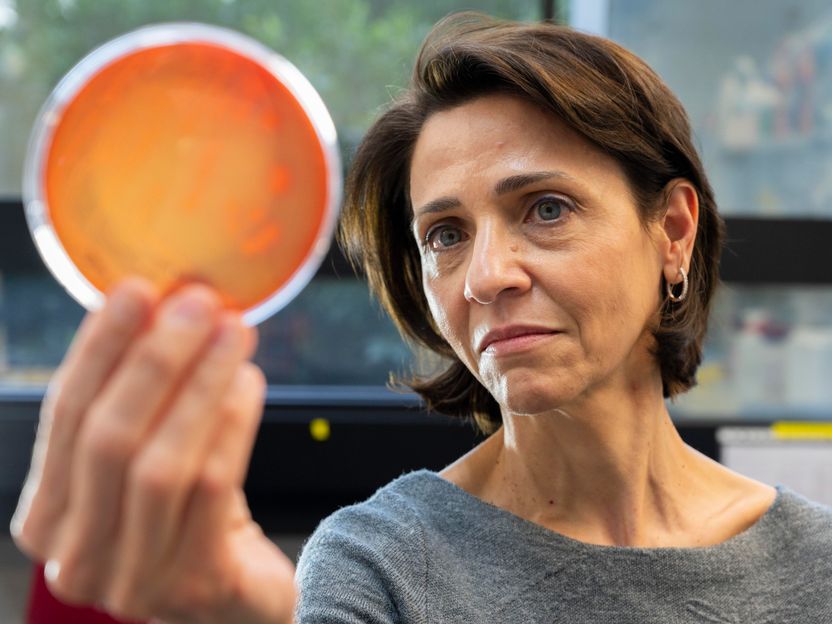Keys to success of intestinal microbiota transplantation in people with metabolic syndrome determined
Researchers have concluded that the success of the intervention depends on the composition of the microbiota and the physiological conditions of the donor
Advertisement
A study coordinated by researchers from the Spanish National Research Council (CSIC) has evaluated the effect of intestinal microbiota transplantation in individuals with metabolic syndrome, defined by the coexistence of a group of alterations that increase the risk of developing cardiovascular diseases, diabetes and other health problems. The work, developed at the Institute of Agrochemistry and Food Technology (IATA-CSIC) in collaboration with the Prince Felipe Research Center (CIPF) and the Amsterdam University Medical Center (AMC), analyzes with state-of-the-art techniques how donor and recipient characteristics affect clinically relevant parameters that determine the success of the transplant.

CSIC researcher Yolanda Sanz studies the success factors of microbiota transplantation.
César Hernández
This study has been carried out in the framework of the European project MyNewGut, coordinated by the CSIC research professor at IATA Yolanda Sanz, and has been published in the journal Gut Microbes. To arrive at the results obtained, they have applied next-generation nanopore sequencing technology to the characterization of the microbiota of fecal samples from donors and recipients of the transplant to assess the extent to which microbial species and strains have been transferred from donors to recipients and on what factors the success of the intervention depends from a clinical point of view.
Microbiota transplantation is used in hospitals for recurrent Clostridioides difficile infections that do not respond to other treatments, where it has shown high efficacy. Its use is also being explored in non-communicable pathologies such as inflammatory bowel diseases (including ulcerative colitis and irritable bowel syndrome), depression, obesity and metabolic syndrome.
In a first study conducted in the context of the MyNewGut project, the research team observed that microbiota transplantation increased the expression of dopaminergic receptors in the brain, which contribute to improved control of food intake, in subjects with metabolic syndrome. This new study has evaluated the influence of donor characteristics on the efficacy of fecal transplantation, using the same donor for multiple recipients and analyzing its microbiota and its ability to implant in the recipient, as well as its capacity to mitigate the characteristic alterations of the metabolic syndrome (hyperglycemia, insulin resistance or elevated blood pressure, among others).
Factors influencing the success of transplantation
Specifically, it has been shown that the factors that influence the success of transplantation are the characteristics of the basal microbiota of the donor and recipient, the sex and age of the donor. Further studies are now needed to confirm these findings and demonstrate their predictive value on a larger scale.
"According to our results, the choice of microbiota donors for a given recipient requires a more comprehensive analysis, both of the relationship between their microbiota and the demographic and physiological characteristics of the donor, which may increase their success in clinical practice. This analysis goes beyond that related to guaranteeing the microbiological safety of the sample to be transferred, as has been done up to now," indicates Yolanda Sanz.
"In this new study we have described that certain characteristics that are not usually assessed in donor selection may be important to guarantee the colonization of the microbiota transferred to the recipients and the improvement of their clinical parameters in the context of metabolic syndrome," says Alfonso Benítez, Miguel Servet researcher (MS-ISCIII) at CIPF, a participant in the study.
"The use of nanopore methodology for the study of gut microbiota, and the demonstration that it is able to accurately discern the species transferred from donors to recipients, has been fundamental to understand aspects of gut ecology to be taken into account during the choice of donors and their recipients," concludes Benítez.
Nanopore-based sequencing (Oxford Nanopore Technologies) represents a milestone in the technological advancement of sequencing platforms. Its ability to generate long DNA sequence reads of between one thousand and one million nucleotides (the basic structure of the genome), compared to second-generation platforms, makes it unique. Its implementation has enabled the use of genomics in scientific research, allowing any laboratory to develop its in situ sequencing infrastructure.
Note: This article has been translated using a computer system without human intervention. LUMITOS offers these automatic translations to present a wider range of current news. Since this article has been translated with automatic translation, it is possible that it contains errors in vocabulary, syntax or grammar. The original article in Spanish can be found here.






















































